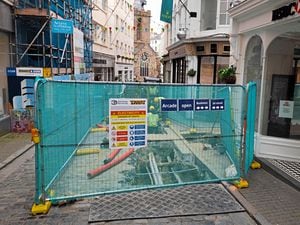New head of law enforcement wants to engage with public
A NEW consultative group between Bailiwick Law Enforcement and islanders is one of the ideas being looked into by its new chief.

Ruari Hardy took over the leadership role from Patrick Rice at the start of the year, inheriting a series of recommendations and comments from a report into Bailiwick Law Enforcement by Her Majesty’s Inspectorate of Constabulary.
Among their ‘areas for improvement’ was communication with the public, and Mr Hardy said that he regarded this as one of the main challenges facing him.
He said that while people often picked up on issues that affected them directly, such as road safety and speeding, matters such as cyber crime, safeguarding and some of the interventions undertaken by police were probably not understood by many people and meetings would give an opportunity to explain these things.
‘One of the challenges is about communicating the role of law enforcement,’ he said.
‘I think it’s an important part of my role to be accessible to the public.
‘The police are the public, the public are the police,’ he said, quoting Robert Peel, seen as the father of modern policing.
The police already had a presence on social media, but other areas were being looked at and any interaction would not just involve Mr Hardy but also some of his senior colleagues from the police and the Guernsey Border Agency.
‘There’s some work in progress about having some sort of public consultative group that would give key stakeholders in the community the opportunity to speak face to face with me as the head of Law Enforcement and some of my senior colleagues as well,’ he said.
He did not think it would take too long to put in place, and said that it was likely to give an opportunity for groups from areas in the third sector, health, social care, education and the parish constables to meet officers.
Then there were those who represented retailers, transport, finance and other sectors.
‘Consultation and engagement should be as broad as possible,’ said Mr Hardy.





